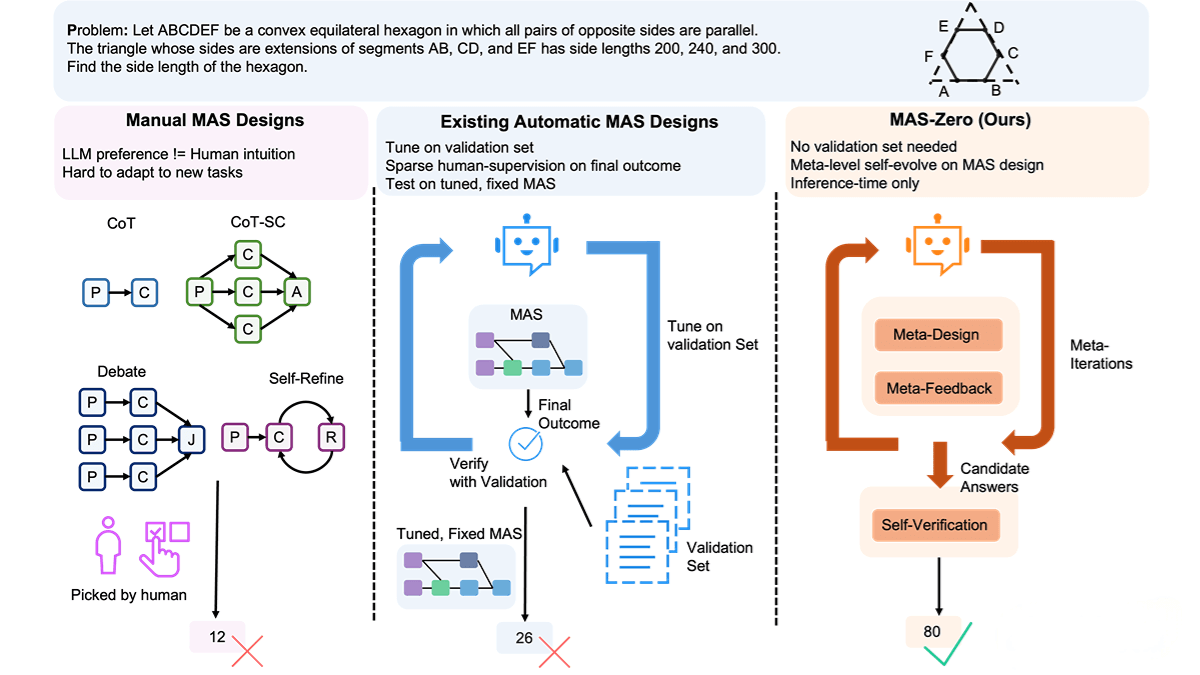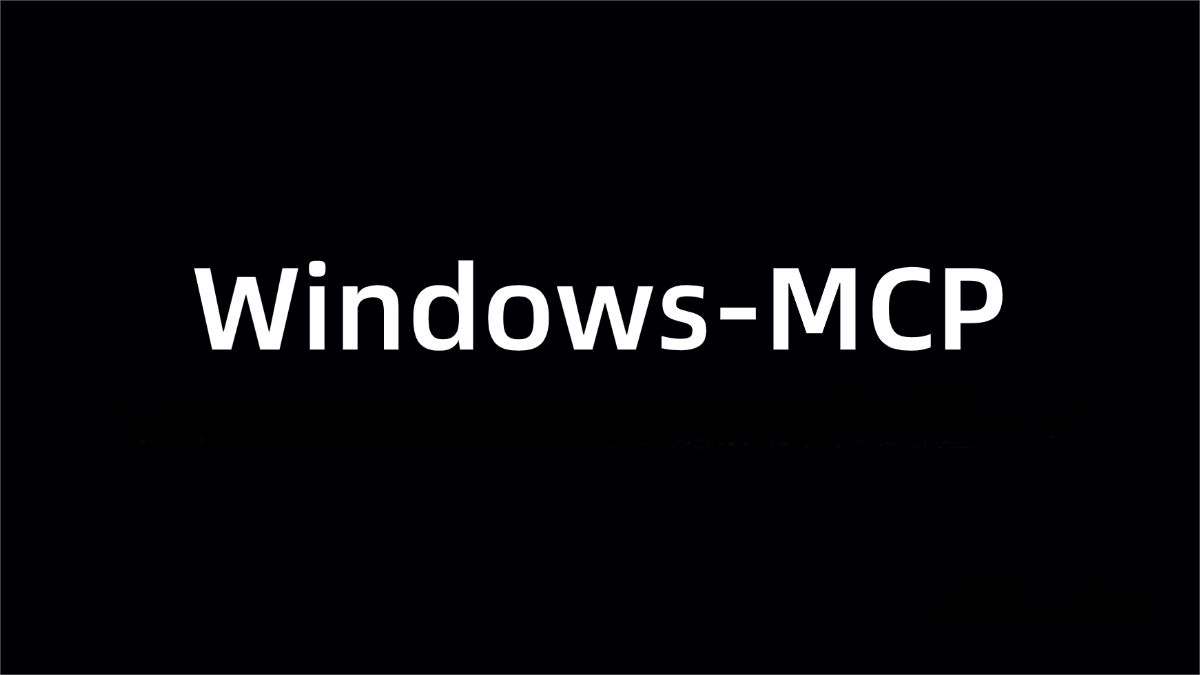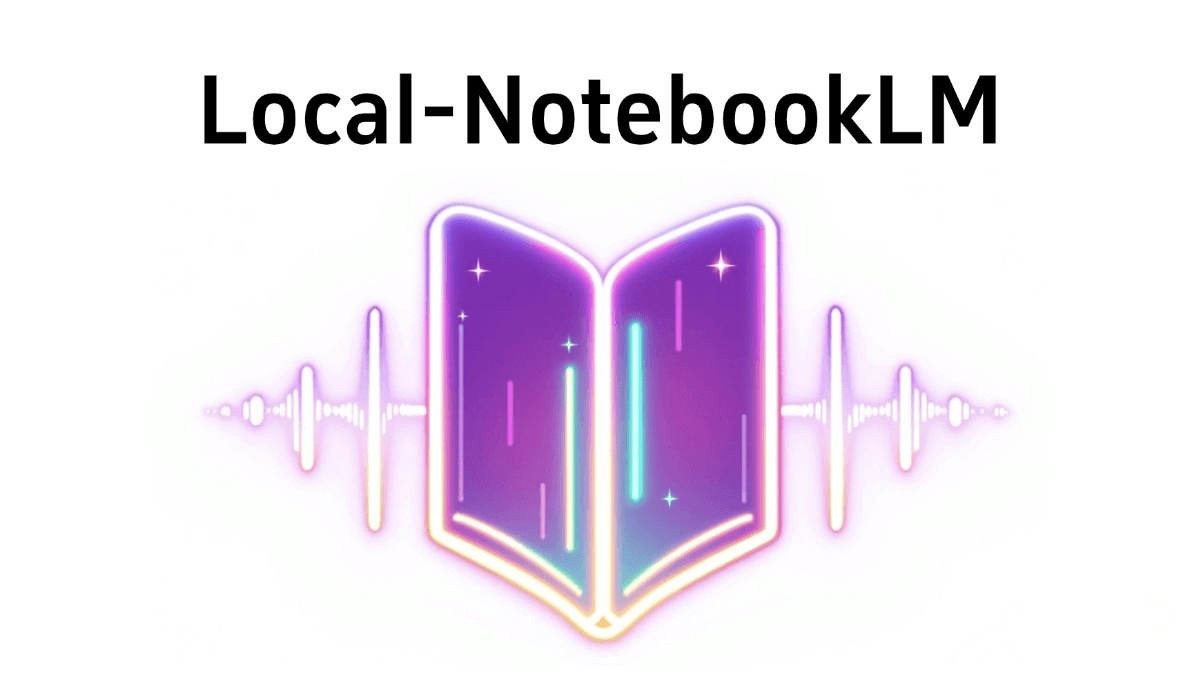MAS-Zero – A Multi-Agent System Design Framework Launched by Salesforce
What is MAS-Zero?
MAS-Zero is a multi-agent system (MAS) design framework developed by Salesforce that can automatically design and optimize MAS configurations without any human supervision. The framework is based on a meta-level design process, dynamically generating, evaluating, and refining MAS setups during inference time for each individual problem instance. At the core of MAS-Zero lies a meta-iteration process that includes task decomposition, MAS generation, and meta-level feedback based on solvability and completeness. A self-verification mechanism then selects the most appropriate solution from all generated candidates. MAS-Zero has demonstrated outstanding performance in mathematical reasoning, graduate-level question answering, and code benchmarks — all without relying on any external supervision.

Key Features of MAS-Zero
-
Automatic MAS Design: Eliminates the need for manually crafting agent roles and communication protocols. MAS-Zero generates optimal MAS structures automatically based on each problem, enhancing adaptability and performance.
-
Dynamic Problem Adaptation: At inference time, MAS-Zero dynamically performs task decomposition and configures agents accordingly, making the system better suited to handle complex and variable tasks.
-
No Validation Supervision Required: MAS-Zero doesn’t depend on any labeled validation sets to adjust or optimize its configurations, reducing data dependency and increasing flexibility and real-world applicability.
-
Performance Optimization: Leveraging meta-level design and self-verification, MAS-Zero continuously refines MAS setups to enhance accuracy and efficiency across complex tasks, all while maintaining cost-effectiveness.
-
Self-Evolving Capability: Through self-feedback and internal evaluations during inference, MAS-Zero is capable of learning and evolving autonomously, progressively optimizing MAS design and performance without any external supervision signals.
Technical Principles of MAS-Zero
1. Meta-Iterations
-
Task Decomposition and MAS Generation: MAS-Zero breaks down complex problems into smaller sub-tasks and generates an MAS implementation for each. It treats MAS design as a code generation task, where a meta-agent dynamically refines the task decomposition and MAS configurations.
-
Meta-Level Feedback: Each MAS configuration is evaluated for solvability and completeness by executing the MAS code and analyzing intermediate outputs. These evaluations generate feedback to guide further iterations and improvements.
2. Self-Verification
-
After multiple meta-iterations, MAS-Zero compares all candidate solutions and selects the most suitable one. This decision is based on verification strategies such as majority voting and the elimination of invalid answers.
3. LLM-Based Meta-Agent
-
A large language model (LLM) serves as the meta-agent, empowering MAS-Zero to interpret and generate natural language instructions. This meta-agent is responsible for task decomposition, MAS generation, feedback construction, and final verification, improving MAS design through interactive refinement.
4. Self-Supervised Learning
-
The entire MAS design and optimization process is conducted without any human-labeled data. MAS-Zero learns in a self-supervised manner by analyzing its own outputs, adjusting MAS configurations based on intermediate results’ solvability and completeness, thereby gradually enhancing system performance and generalizability.
Project Links
-
Project Website: https://mas-design.github.io/
-
GitHub Repository: https://github.com/SalesforceAIResearch/MAS-Zero
-
arXiv Technical Paper: https://arxiv.org/pdf/2505.14996
Application Scenarios
-
Complex Problem Solving: Suitable for mathematics and scientific computing, where complex problems are decomposed into manageable sub-tasks, improving both efficiency and accuracy.
-
Natural Language Processing: Useful in advanced question answering and text generation/editing tasks, delivering high-quality NLP outputs.
-
Software Engineering: Applicable in code generation, optimization, and software testing by breaking down tasks into subtasks, thereby enhancing development speed and test coverage.
-
Healthcare: Supports disease diagnosis and treatment planning, improving the precision and personalization of medical decision-making.
-
Education: Facilitates personalized learning and intelligent tutoring. By decomposing educational tasks based on student needs, various agents can provide tailored learning paths and guidance, improving learning outcomes.
Related Posts




